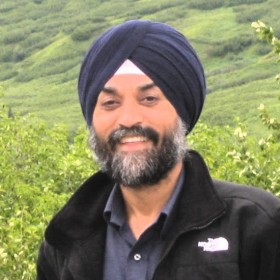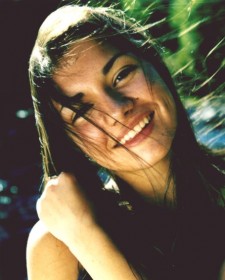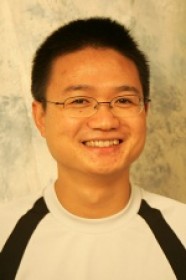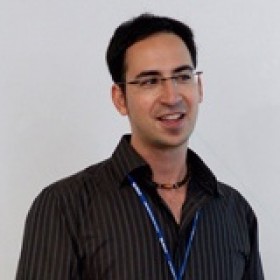Seminar
A Graph-Matching Kernel for Object Categorization
Event Location: NSH 1507Bio: Olivier Duchenne received the M.S. degree in Computer Science and Applied Mathematics in École Normale Supérieure (ENS), in Paris in 2008. He then joined as a phD candidate the research team, WILLOW in the same university under the supervision of professor Jean Ponce. He received the best student paper, honorable mention, [...]
Visual Intelligence from Video and 3D Sensor Analytics
Event Location: NSH 1305Bio: Harpreet S. Sawhney is the Technical Director of Vision & Learning Technologies at SRI-Sarnoff in Princeton, NJ. Harpreet received his Ph.D. in Computer Science (Computer Vision) in 1992 from the University of Massachusetts, Amherst. His areas of interest are Object/Event Recognition, Motion Video Analysis, 3D Modeling, Immersive Telepresence, Video Enhancement and [...]
Cognition-enabled Everyday Manipulation
Event Location: NSH 3305Bio: Michael Beetz is a professor for Computer Science at the Department of Informatics of the Technische Universität Muenchen and heads the Intelligent Autonomous Systems group. He is vice coordinator of the German national cluster of excellence CoTeSys (Cognition for Technical Systems) where he is also co-coordinator of the research area “Knowledge [...]
Leveraging Structure to Efficiently Make Good Decisions in an Uncertain World
Event Location: NSH 1305Bio: Emma Brunskill is an an Assistant Professor in the Computer Science Department at Carnegie Mellon University. She was previously a NSF Mathematical Sciences Postdoctoral Fellow at the University of California, Berkeley. She completed her PhD in Computer Science at MIT on a NSF Graduate Fellowship and her masters in Neuroscience at [...]
Source Constrained Clustering
Abstract: We consider the problem of quantizing data generated from disparate sources, e.g. subjects performing actions with different styles, movies with particular genre bias, various conditions in which images of objects are taken, etc. These are scenarios where unsupervised clustering produces inadequate codebooks because algorithms like K-means tend to cluster samples based on data biases [...]
3D Reconstruction of a Smooth Articulated Trajectory from a Monocular Image Sequence
Event Location: NSH 1507Abstract: In this talk, I will present a method to reconstruct an articulated trajectory in 3D given the 2D projection of the articulated trajectory, the 3D parent trajectory, and the camera pose at each time instant. This is a core challenge in reconstructing the 3D motion of articulated structures such as the [...]
Evolving the OpenGL Graphics Pipeline in Pursuit of Real-Time, Film-Quality Rendering
Event Location: NSH 1305Bio: Kayvon Fatahalian is an Assistant Professor in the Computer Science Department at Carnegie Mellon University. His research focuses on the design of programming abstractions and efficient parallel systems for computer-intensive applications such as interactive computer graphics.Abstract: In the past fifteen years the capabilities of real-time graphics systems have increased rapidly as [...]
Discovering Object Instances from Scenes of Daily Living
Event Location: NSH 1507Abstract: We propose an approach to identify and segment objects from scenes that a person (or robot) encounters in Activities of Daily Living (ADL). Images collected in those cluttered scenes contain multiple objects. Each image provides only a partial, possibly very different view of each object. An object instance discovery program must [...]
Feature Seeding for Action Recognition
Event Location: NSH 1507Abstract: Progress in action recognition has been in large part due to advances in the features that drive learning-based methods. However, the relative sparsity of training data and the risk of overfitting have made it difficult to directly search for good features. In this work we suggest using synthetic data to search [...]
AI and Economics: The Dynamic Duo
Event Location: NSH 1305Bio: Ariel Procaccia is an Assistant Professor in the Computer Science Department at Carnegie Mellon University. His research interests include the (pairwise) intersections of AI, social choice, and game theory. He received his Ph.D. in computer science from the Hebrew University of Jerusalem, and was subsequently a postdoc at Microsoft and Harvard. [...]









